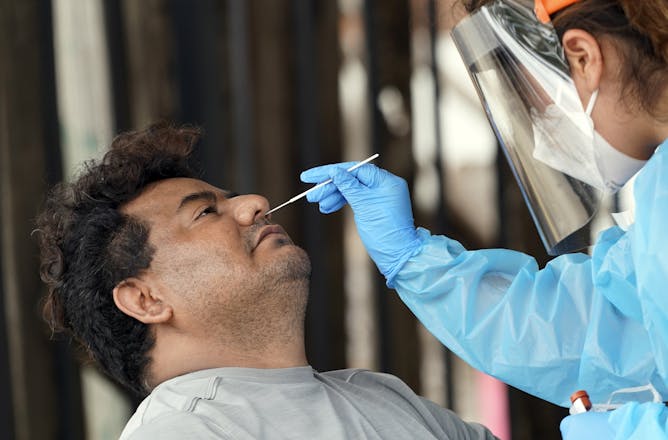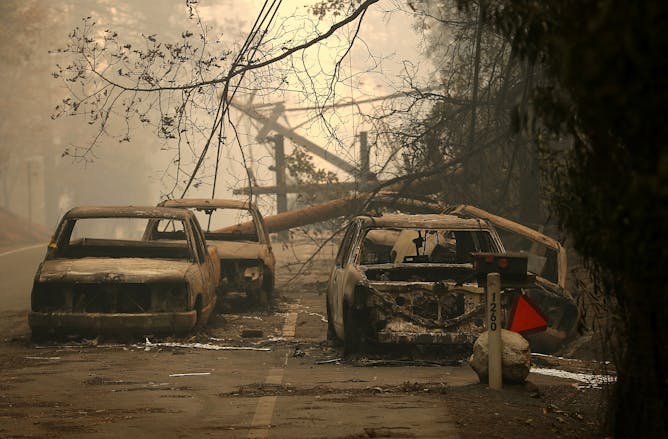
As cases surge, testing needs to increase as well.
AP Photo/David J. Phillip
Ronald D. Fricker, Jr., Virginia Tech
Test positivity rates measure the success of a testing program. Even though the US performs a huge number of tests, high test positivity rates across the country show that that it still isn't enough.
|

In healthy older people, loneliness has a pattern of stress response similar to that of people who are under chronic stress.
Justin Paget via Getty Images
Karra Harrington, Pennsylvania State University; Martin J. Sliwinski, Pennsylvania State University
The social isolation older adults are experiencing as they try to stay safe from the coronavirus pandemic is raising new mental health risks, but people can take steps to protect themselves.
|

The 2018 Camp Fire north of Sacramento burned everything in its path: cars, power lines, and buildings – and contaminated local drinking water.
Justin Sullivan/Getty Images
Andrew J. Whelton, Purdue University; Caitlin R. Proctor, Purdue University
Buildings aren't the only things at risk in wildfires. Recent disasters in California have left local water system contaminated with toxic chemicals afterward, slowing return and recovery.
|